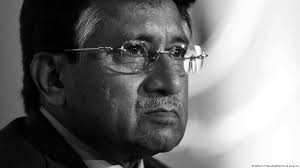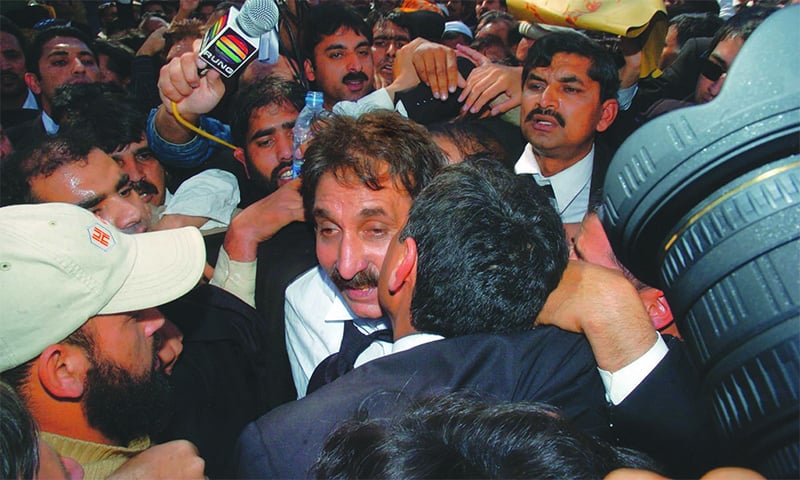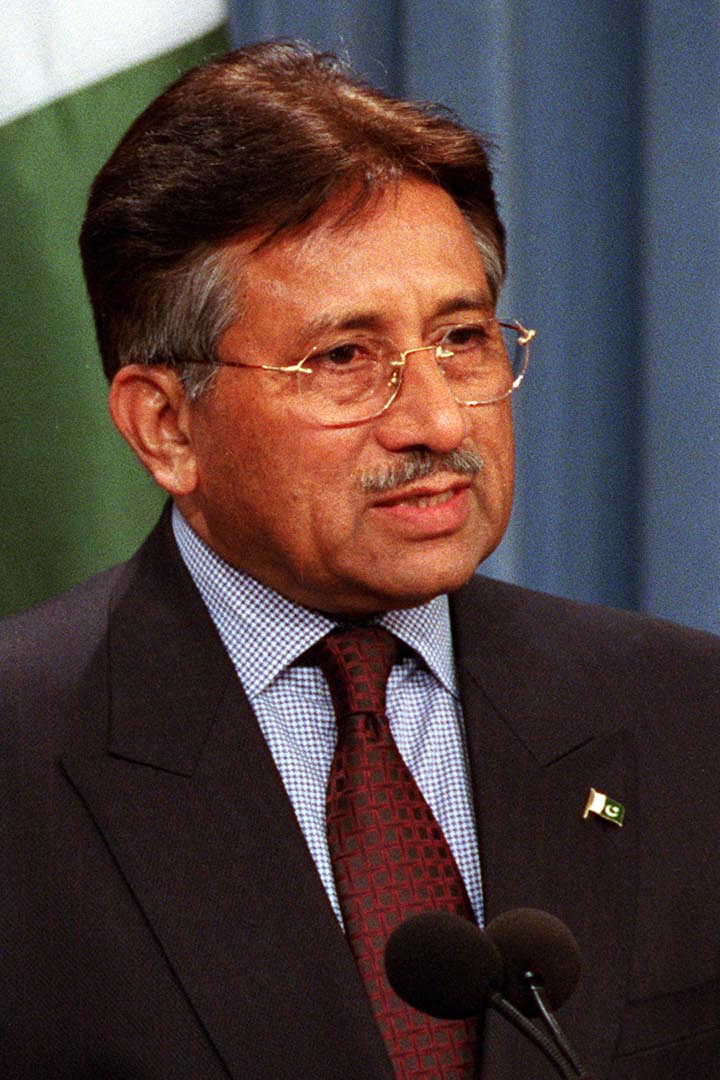Pakistan’s Former Chief of Army Staff and President Pervez Musharraf passed away on Sunday at 79yrs of age, after a protracted battle with a rare health condition called amyloidosis.
Section of media mention Geo News reporting that a special flight will be made to Dubai on Monday to bring Musharraf’s body back to Pakistan for burial.

Meanwhile, a Khaleej Times report said that the Consulate General of Pakistan in Dubai has issued a no-objection certificate (NOC) as Musharraf’s family intends to repatriate his body to Pakistan.
“We are in touch with the family and the consulate will facilitate in whatever way it can. The consulate has issued the no objection certificate,” the report quoted Consul-General Hassan Afzal Khan as saying.
Condolences
President Arif Alvi prayed “for eternal rest of the departed soul and courage to the bereaved family to bear this loss”.
Pakistan’s Prime Minister Shehbaz Sharif also expressed his condolences, as did the country’s military leaders.
The military’s media wing Inter-Services Public Relations (ISPR), in a statement issued immediately after Musharraf’s demise prayed, “May Allah bless the departed soul and give strength to the bereaved family,”
The statement added that Chairman Joint Chiefs of Staff Committee (CJCSC) General Sahir Shamshad and all the services chiefs expressed their heartfelt condolences.
Snapshot of the Man Since 1999
Pervez Musharraf served as Pakistan’s army chief for almost nine years (1999-2008). He became country’s 10th president of in 2001 and held the position until early 2008.
The former leader had survived numerous assassination attempts. He was found on the front line of the struggle between militant Islamists and the West. He supported the US “war on terror” after 9/11 despite domestic opposition.
In 2008 he suffered defeat in the polls and left the country six months later. When he returned in 2013 to try to contest the election, he was arrested and barred from standing.
He was charged with high treason and was sentenced to death in absentia only for the decision to be overturned less than a month later. He left Pakistan for Dubai in 2016 to seek medical treatment and had been living in exile in the country ever since.
On December 17, 2019, a special court handed Musharraf death sentence in the high treason case, six years after the trial started. The case was filed by the PML-N government against Musharraf for suspending the Constitution on November 3, 2007 when he imposed emergency in the country.
A month later, the Lahore High Court declared unconstitutional all the actions taken by the previous government against Musharraf, including the filing of a complaint on high treason charge and the formation of a special court as well as its proceedings. This lead to the abolition of the death penalty handed down to him by the trial court.
Early Life
Pervez Musharraf was born in pre-partition Delhi on August 11, 1943. After the partition, his family settled in Karachi where he attended Saint Patrick’s School. Later, he joined the Pakistan Military Academy at Kakul and graduated from the institution in 1964. He was subsequently commissioned in the Pakistan Army.
the battles
His first battlefield experience came during the 1965 Indo-Pak war and he served in the elite Special Services Group (SSG) from 1966-1972.
During the 1971 war with India, Musharraf was a company commander of an SSG commando battalion. After 1971, he continued to excel in several military assignments and gained rapid promotions within the army.
In October 1998, he was appointed the chief of army staff by the then prime minister Nawaz Sharif. A year later, he overthrew Sharif’s government in a bloodless coup and later became the country’s president.
The 1999 coup
On October 12, 1999, troops took over the Prime Minister House after Nawaz Sharif prevented Musharraf from landing at Karachi airport upon his journey back from Sri Lanka.
On finding out, Musharraf declared a state of emergency, suspending the Constitution and assumed the role of chief executive.
There were no organized protests against the coup within Pakistan but the measure was thoroughly criticized by the international community.
In June 2001, Musharraf became the president of Pakistan.
The presidency challenge
The 9/11 attacks took place just a few months after Musharraf became the president. Pakistan entered into an alliance with the US in the ‘war on terror’.
The Afghan region has been a hot-bed of global powers, where Pakistan had earlier allied with US in Afghan Jihad against USSR’s communist expansion. The Al-Qaeda was refuging in Afghanistan and the 9/11 world trade center attackers belonged to the militant group.
Fight Against In-house Militancy
Pervez Musharraf also launched operation inside Pakistan against the self-proclaimed jihadist group taking over the Red Mosque in Islamabad who created public law and order situation in the Federal Capital Territory.
The political commentators and public views on the operation remain as divided on the operation as on the decision to enter into alliances with US on Afghan Jihad and War on terror. The former military ruler Musharraf defended the decision to enter into War on terror on several occasions.
Similarly, the man is often criticized for the killing of Baloch tribe leader Nawab Akbar Bugti. The government of Pakistan accused him of keeping a private militia and leading a guerrilla war against the state. On 26 August 2006 Bugti was killed when his hide-out cave, located in Kohlu, about 150 miles east of Quetta, collapsed.
The 2002 Referendum to legitimizing coup
Musharraf held general election in October 2002 during which he allied himself with PML-Q, MQM and an alliance of six religious parties called MMA.
With this election, Musharraf was able to gather the required two-thirds majority to pass the 17th Amendment which helped in legitimizing the 1999 coup as well as several other measures adopted by him.
In January 2004, Musharraf won a confidence vote by both houses of the parliament and the four provincial assemblies by a majority of 56pct. He was declared elected in a process disputed by his political opponents.
Country’s Development under Musharraf’ Eight years Rule
Pakistan pursued policies of liberalization, deregulation and privatization for economic recovery. The policies aimed at ensuring macro-economic stability and introducing structural reforms for self-sustainable growth. The economy had expanded at an average rate of 7pc annually.
Pakistan registered an FDI growth amounting to more than 13 billion US dollars. At one point in 2004-5 the economic growth touched a record level of 9pc. The exchange rate remained stable despite trade and current account deficits. This indicated strong inflows of external resources. The exchange reserves had crossed the USD 16 billion mark first time until the period.
His economic policies resulted in easing banking leasing operations and considerably raising the living standard of common citizens. He also brought social liberalization in country.
His presidency is also credited with the establishment of NADRA, Rescue service 1122 and beautification of Islamabad and Karachi.
The road communications improved with spreading of a road networks of up to 35000km under his eight years rule compared to the 29000km combined by the then development works history of the country.
The Pakistan’s media channel mushrooming happened under his rule. On many accounts he is credited for introducing media freedom in the country.
The Feud with Judiciary
In March 2007, Musharraf suspended then Chief Justice Iftikhar Muhammad Chaudhry after the latter refused to resign allegedly over abusing his office. The incident unleashed violent protests by lawyers and civil society activists. On June 20, 2007, the Supreme Court reinstated the chief justice and declared Musharraf’s suspension of the former as void.

However, the chief justice was again deposed when Musharraf imposed a state of emergency in the country on November 3, 2007.
Within 25 days of the emergency in place, Musharraf resigned from his position of army chief, with General Ashfaq Pervaiz Kayani taking charge. Musharraf, who was still president at the time, finally lifted the emergency on December 15, 2007.
The political dynamics had considerably
Resignation before impending impeachment
After giving Musharraf the chance to voluntarily resign, the PPP-led coalition government at the centre — formed after the 2008 general elections — initiated a parliamentary procedure to impeach him. Musharraf initially refused to resign and the coalition began official proceedings for his ouster. He voluntarily left the post before the impeachment could be finalized.
Musharraf was also named in the cases pertaining to Benazir Bhutto’s murder, Nawab Akbar Bugti’s killing and the ‘illegal confinement’ of 62 judges after the November 2007 emergency. However, in March 2013, the Sindh High Court granted him protective bail in all three cases.
In 2010, Musharraf launched his political party — All Pakistan Muslim League (APML).
Self-exile and health issues
Musharraf was barred from travelling abroad after his name was placed on the Exit Control List (ECL) on Apr 5, 2013. However, the ex-president’s name was struck off the ECL by the interior ministry and he flew to Dubai on March 17, 2016 to “seek medical treatment”. Following his exit he did not return until he lived.
In September 2018, it emerged that he was “growing weaker rapidly” due to an unspecified illness. A month later, it was revealed that he was suffering from amyloidosis, which had affected his mobility. In March 2019, he had a reaction and needed hospitalization.
The man will be remembered for his unflinching take on Pakistan’s security concerns as well as for his good and not so good political takes. Musharraf’s autobiography titled In the Line of Fire was published In 2006.










